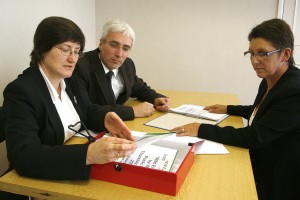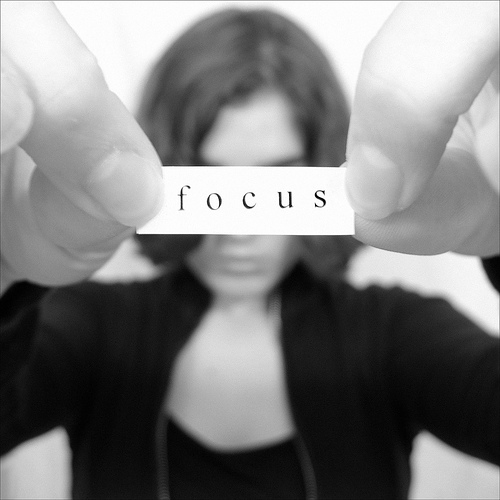In thinking about working with a financial planner, you’ve decided you want to take control of your finances, build your wealth, and plan for a secure retirement. This is a great decision.
Who you choose as your financial planner is not a decision to be taken lightly. You want to be sure it’s the right person for you, personally, and that there is a good fit. To help you in this process, I want to discuss how to approach the interview process with prospective planners, and help you prepare for all the questions you’ll be asked. I cover many of these points in a comprehensive and free Consumer Awareness Guide I created on How to Choose and Work With a Financial Planner You Can Trust.

Photo by: Alan Cleaver licensed under Creative Commons Attribution 2.0 Generic
Often times when you meet with someone you are considering for your financial planner, you will be presented with a lot of questions, and/or questionnaires. Topics will range from your satisfaction with your current tax bill, whether you are taking advantage of all the available tax strategies that apply to you, whether you have a pension plan, what age you would like to retire, whether you have education savings for any children or relatives, and how organized you are in terms of your financial paperwork. This information will help the planner understand your level of awareness, your needs and your objectives.
Reasonable questions you could expect to be asked when it comes to your existing investments are how those monies are invested, how you have made those decisions up to now, whether you’re protected from inflation or a market crash, and if you’re comfortable with where the money is invested.
If you are a business owner, expect to discuss succession planning to a certain degree. You should be prepared to explain what thoughts (if any) you’ve had or what planning you’ve done at this point around what will happen to the business when you retire, and how you will get equity back out of the business to fund your retirement.
Insurance coverage would be another topic of discussion, to see where you’re at in terms of being protected from risk. For example, if you are faced with physical limitations or disabilities down the line, do you have solutions in place to pay your bills and still maintain a comfortable retirement?
Speaking of retirement planning, we’ll also want to talk about how retirement will impact your mortgage. If you will still expect to have a mortgage at that time, perhaps you’ll be considering downsizing to reduce or eliminate that mortgage or even just because you expect to be traveling more and don’t want such a big house to maintain when you won’t be there as often.
Estate planning is the last topic we would cover in that first meeting, and we would look at how you will want your assets disbursed when you eventually pass on, not just to other family members but to any charities you feel strongly about or other people or organizations you feel strongly about. We want to make sure those objectives are clear and that they’re in writing, so we’ll discuss whether you have a will or not as well.
One of the things I like to stress during that question-and-answer process is to feel free to answer “I don’t know” to any question. You aren’t expected to know everything – if you did, you wouldn’t need a financial planner. Be honest and don’t be afraid to admit what you don’t know. That level of openness will help the planner identify if they are equipped to help you, and it will also help you identify how willing the financial planner is to educate you, partner with you, and empower you with the knowledge and options you need going forward.
Throughout the discussion, a good sign that you’re working with someone compatible and competent is if you find new things coming to light as you talk more and more about your goals and objectives. If you start noticing how you feel about your present financial situation and the planner has given you some tools and assistance in getting clearer on what your goals and objectives are, that’s a good sign you have found a strong match.
Another thing I like to let people know is that the first meeting is not the time to have a detailed look at all your financial statements. You should never feel pressured to bring all your statements to that first meeting, nor should you expect to walk out of that meeting with specific recommendations from the planner about how to plan for your retirement and where to invest your money. The first meeting is about getting to know one another’s communication styles, needs, goals, history, personality, and abilities, and then determining if it feels like a good fit.
If you find that during the interview process with a prospective financial planner you are not asked these types of relevant questions, or are pressured to hand over financial statements or make decisions on the spot, take a moment to reflect. Are they demonstrating the level of interest and knowledge required to help you with what you need? Is their communication style one you are comfortable with? There’s no rush. Take all the time you need to find the person best suited to you and to help your financial well-being in the future.
















